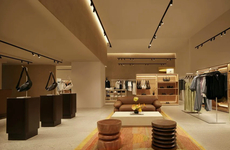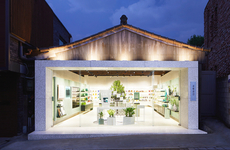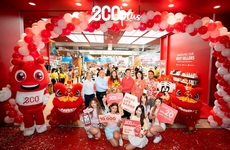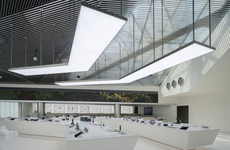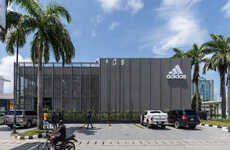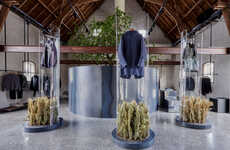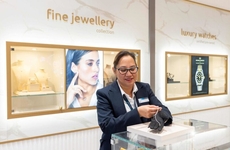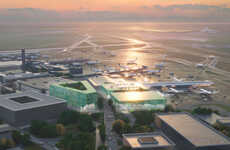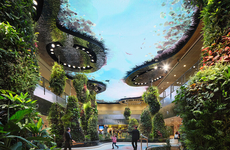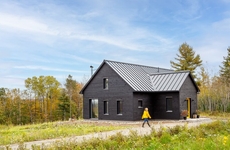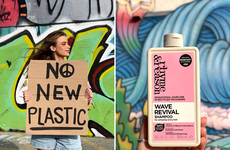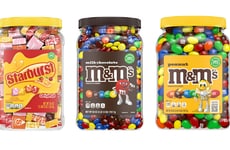
Tiffany & Co’s Changi Airport Store Boasts a Recycled Storefront
Debra John — September 18, 2024 — Eco
References: tiffany & globaldesignnews
Tiffany & Co.'s new store at Changi Airport features a storefront designed by MVRDV using recycled ocean plastics. The design incorporates "a unique cell-like pattern, which aligns with Tiffany’s commitment to sustainability and reflects elements of the brand’s identity, including Tiffany Blue and innovative materials inspired by Louis Comfort Tiffany’s late 19th-century glass art contributions; the store’s design also includes references to flora and fauna."
The design team at MVRDV drew inspiration from Singapore’s coral reefs, using patterns observed in coral species to create the store’s façade. To ensure the design’s durability, "MVRDV NEXT developed scripts to refine the pattern, while 3D printing specialists, Aectual, produced the 50-millimeter-thick screen using recycled plastics, including reclaimed fishing nets."
This approach not only highlights the store’s connection to the ocean but also supports marine conservation by incorporating recycled materials.
Image Credit: Global Design News / Tiffany & Co
The design team at MVRDV drew inspiration from Singapore’s coral reefs, using patterns observed in coral species to create the store’s façade. To ensure the design’s durability, "MVRDV NEXT developed scripts to refine the pattern, while 3D printing specialists, Aectual, produced the 50-millimeter-thick screen using recycled plastics, including reclaimed fishing nets."
This approach not only highlights the store’s connection to the ocean but also supports marine conservation by incorporating recycled materials.
Image Credit: Global Design News / Tiffany & Co
Trend Themes
1. Recycled Materials in Retail Design - Retailers are increasingly incorporating recycled materials, like ocean plastics, to create eco-friendly storefronts that resonate with eco-conscious consumers.
2. Biomimetic Architectural Patterns - Using natural patterns such as coral-inspired designs in architecture can enhance aesthetic appeal and underscore a brand's commitment to environmental themes.
3. 3D Printing in Storefront Construction - The use of 3D printing technology to build customized and sustainable retail spaces is revolutionizing store design by offering precision and eco-friendly solutions.
Industry Implications
1. Retail - The retail industry is shifting towards eco-friendly designs, with a focus on sustainability through the use of recycled materials and innovative architectural concepts.
2. Architecture - Architectural practices are evolving to include biomimicry and sustainable materials, pushing for a harmonious integration of natural design elements in urban environments.
3. 3D Printing - The 3D printing industry is expanding its scope by enabling the construction of durable, customized structures using recycled materials, promoting environmental sustainability.
7.7
Score
Popularity
Activity
Freshness

